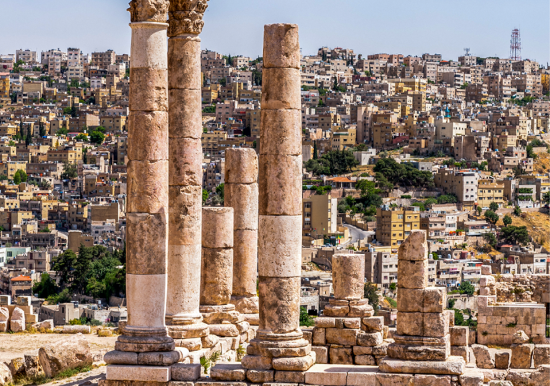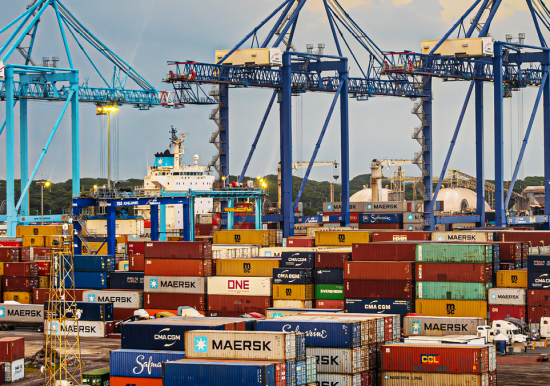
Country Spotlight 2025 & Practitioner Story: Tanzania
Tanzania is ranked 78th in 2025, up from 82nd in 2021, making it the country with the most improved ranking in Africa. The Tanzanian government’s increasing adoption of new policy solutions and reform strategies corresponds with notable rank gains in the Leadership & Foresight pillar.
In recent years, Tanzania’s government has expanded digital governance initiatives and introduced structural reforms to improve administrative efficiency and service delivery. The government’s Digital Tanzania Project is laying a foundation for technology‑driven governance solutions,1 while new regulatory frameworks, such as the Data Protection Act, seek to enhance security in the digital space.2
Tanzania has also sought to implement more reliable and predictable government policies, and has consolidated its strategic ties with countries such as Egypt, France, and Türkiye.3 This has boosted international confidence, in turn attracting more foreign direct investments and development loans. The country’s foreign and domestic investment surged 21.6% to US$ 6.56 billion in the fiscal year ended June 2024.4
Tanzania’s CGGI Rank

Tanzania’s Pillar Dashboard

Endnotes
- World Bank Group. (28 February 2025). Tanzania ‑ Digital Tanzania Project: Implementation Support Mission. https://documents1.worldbank.org/curated/en/099041125042045958/pdf/P160766-7bde060f-9040-4355-b690-224c385dd10f.pdf
- Bertelsmann Transformation Index (BTI). (2024). Tanzania Country Report 2024. https://bti-project.org/en/reports/country-report/TZA
- Kell, F., Masabo, A., and Feltes, T. (29 April 2024). Reviving Tanzania’s Regional Leadership and Global Engagement. Chatham House. https://www.chathamhouse.org/2024/04/reviving-tanzanias-regional-leadershipand-global-engagement
- NTU‑SBF Centre for African Studies. (24 August 2024). Tanzania records a dramatic surge in FDI. https://www.ntu.edu.sg/cas/news-events/news/details/tanzania-recordsa-dramatic-surge-in-fdi
Following through on the ‘4Rs’ in Tanzania
Sakina Bakari Mwinyimkuu, Director of the Division of Performance Monitoring & Evaluation in Tanzania’s Prime Minister’s Office—Policy, Parliament and Coordination, explains how the division’s work supports ambitious national development plans in Africa’s latest rising star.
What factors have contributed to improving government effectiveness in Tanzania over the past five years?
Tanzania has good and stable leadership. Our President, Samia Suluhu Hassan, assumed office in 2021, in a smooth transition following the passing of John Magufuli. Since then, she has been focused on reforms to improve relations with different communities, enhance government transparency, and restore democratic practices.
Tanzanians have a culture of respecting one another. Despite our cultural diversity—with more than 124 tribes in the country—there is a certain unity, supported by Swahili as the main common language.

We treat each other as Tanzanians. Whenever there is disagreement, we look for a way to sit together and build consensus. As a result, there has been relative political stability, and little civil unrest, compared with some other countries in the region. Indeed, when the current President came to power, she brought all the opposition political parties together to discuss how they wanted to participate, on equal political ground.
President Samia’s philosophy and agenda in government can be summed up as the “4Rs”: Reconciliation, Resilience, Reforms and Rebuilding. These four principles frame, guide, and focus everything we do in government.
For instance, one of the President’s priorities in government has been structural reforms. She has put in place key institutions to develop a vision guiding Tanzania’s economic transformation. This includes setting up a Planning Commission through the Planning Commission Act of 2023 to coordinate national planning and priorities, and completing flagship government projects of which we have 18 across the country. Another is the new division that I am now heading, responsible for all government performance monitoring and evaluation.

What role does your department play in improving the work of the Tanzanian government?
The department was set up in 2023 to track the progress of government policies, programs, plans, and projects. We provide performance reports, monitoring local, sectoral, and national indicators on how government is faring in implementing developmental plans and national goals. There are now monitoring and evaluation units in all ministries and local government authorities. Efforts are ongoing to ensure all government institutions have evaluation units, including independent departments, 248 parastatals and government-linked companies, reporting directly to the top leadership—be it the Ministry’s Permanent Secretary, the organisation’s CEO, Regional Administrative Secretaries, or District Executive Directors.
The Tanzanian government is taking a strategic approach to national development, and we are in the process of finalising a new national vision 2050 by June 2026. At present, we monitor indicators towards five‑year development plans, identify performance gaps, and offer recommendations on areas where more effort is needed.
We also release public reports to show citizens how we are doing in different areas of government, and whether we have met particular targets—say for water projects or building health dispensaries. These reports show the people there are ongoing projects, and give them a stake to intervene if the projects are not progressing according to plan. This promotes government accountability and spurs government organisations to do better.

We also work with the Ministry for Information, Culture, Arts and Sports to conduct monthly sharing sessions with the media in which government officials, such as the CEO from the National Health Insurance or Water Authority or the Health Minister, update the public on progress made in key projects. This gives citizens a chance to understand what is going on and to speak up on matters they care about. It is also an opportunity for the government to explain issues, share evidence, and clarify facts, addressing any potential rumours or controversies in circulation.
Apart from your department providing performance oversight, how else is Tanzania promoting better coordination across government?
Tanzania has a system of national coordinating ministries. These include six central government ministries: the President’s Office—State House, President’s Office—Regional Administration and Local Government, President’s Office—Public Service Management, President’s Office—Planning and Investments, Prime Minister’s Office, and the Ministry of Finance. Five other institutions are responsible for coordination at the national level: the President’s Office—Planning Commission, Treasury Registrar, National Bureau of Statistics, National Audit Office, and E‑Government Authority. The Prime Minister’s Office has the mandate to coordinate all government interventions overall.
Apart from recent reforms to streamline processes and reduce bureaucracy, we have also been carrying out digitalisation, which makes processes simpler, easing coordination between ministries and agencies, as well as between local and central governments. This is an important factor because Tanzania has 31 administrative regions, each with its local government agencies, that we have to coordinate across.
My office is now finalising an integrated government performance system that will serve as a digital dashboard bringing together all the performance reports being produced, with more detailed information, including inputs from the public. The data will be consolidated with minimal human intervention—we want the data to speak for itself.
The CGGI shows that Tanzania has made progress in putting in place more Robust Laws & Policies, strengthening the judiciary, and improving transparency. What are recent moves in this direction?
Tanzania has recently placed significant emphasis on strengthening the judiciary. We have been investing in training and development for judges, magistrates, and court staff, to enhance the competence and professionalism of judicial officers—particularly in areas such as commercial law, environmental law, and human rights.
We have also invested in technology to make our judicial proceedings at different levels more efficient. For example, we now have digital case management systems. A citizen can track and follow up on his or her case online, and see the outcomes. Reducing delays helps to ensure justice is delivered more swiftly and with greater accountability.
We assess the performance of our judges and magistrates—they are given targets to meet, and they report on the extent to which these have been met. This has helped reduce the number of backlogged cases.
There has also been an ongoing review of our legal framework to ensure it meets the needs of our stakeholders and is in line with international standards. For instance, we have reformed our land laws to address land disputes, especially in rural areas, as well as to improve property rights for women in marginalised groups.
The government is also working with the Tanzania Law Association (TLS). We now have a well-known public movement called the Mama Samia Legal Aid campaign under the Ministry of Constitutional and Legal Affairs. The campaign started in April 2023, and as of now, has reached 25 out of 26 national regions,1 supporting more than 2 million citizens on various legal issues. Government officials and lawyers go to the regions, districts, and wards to listen to the people, identify the legal challenges they have, and help with their cases.

How is the Tanzanian government making the country a more Attractive Marketplace?
One of the government’s focal points is investment in infrastructure to increase production capacity and boost future economic growth. For instance, the Julius Nyerere Hydropower Station, which will be completed this year, will help address the national challenge of electricity supply. We are also building an East Africa crude oil pipeline running 1,443 km from Uganda to Tanzania. Another project is a standard gauge railway line that will link Dar es Salaam to the Mwanza region, as part of an East African Railway Master Plan, cutting travel time from eight hours by road to only three hours.

The Julius Nyerere Hydroelectric Project on the Rufiji River is one of Tanzania’s key efforts to strengthen energy capacity and tackle long‑standing electricity supply challenges, while supporting broader economic development. Rufiji River, Stiegler’s Gorge, Selous Game Reserve, Tanzania. February–October 2024.
Nevertheless, economic diversification and job creation remain issues. Youth unemployment is high. Tanzania is still mainly reliant on agriculture using older technologies. There have been some initial efforts to modernise agricultural practices and to involve youth. What we need is a concerted, whole‑of‑government approach to modernise our agriculture. We are also looking to promote industrialisation through nationalisation in areas such as manufacturing, agro‑processing, textiles, and technology.
In seeking to improve governance in Tanzania, what key challenges remain?
There is a prevailing need to improve public sector efficiency. We are currently using technology to improve service delivery—a passport that used to take six months to get can now be obtained within a week. There are other services that lag behind in this digital transformation. While there have been improvements to high-level centralised services, local government service delivery often remains inefficient, and that is what over 70% of our population still rely on.
Corruption and nepotism are still concerns at various levels of administration. We are reducing these incidents through better HR policies, and by using digital technology: with less human intervention in service delivery, there are fewer opportunities for corrupt practices. You can get your driving licence without ever seeing an officer; you can follow up on your court case online without having to interact with a judicial clerk who might pressure you for a bribe. These measures will help improve governance in general, and make us a better place to do business.

Tanzania’s e-Immigration Portal has streamlined passport applications by reducing processing delays and minimising human intervention—part of digitalisation efforts to improve public services, curb corruption, and strengthen government efficiency and accountability.2
We are also strengthening our government oversight bodies and enforcing accountability in public institutions, to ensure that findings from audits are acted upon in a timely manner. The establishment of my division is further indication that the Tanzanian government is serious about monitoring and evaluating progress in the public sector, assuring the public and the market that whatever we commit to will be achieved.
While there have been improvements to high-level centralised services, local government service delivery often remains inefficient, and that is what over 70% of our population still rely on.
Endnotes
- Mama Samia Legal Aid Campaign. https://www.mslac.or.tz/en
- Tanzania e-Immigration Online Portal. https://eservices.immigration.go.tz/

SAKINA BAKARI MWINYIMKUU
Director of the Division of Performance Monitoring & Evaluation in Tanzania’s Prime Minister’s Office—Policy, Parliament and Coordination
In her role as Director of Performance Monitoring and Evaluation, Sakina Bakari Mwinyimkuu brings expertise in performance management, development planning, and monitoring and evaluation, providing critical leadership and strategic guidance to public institutions on tracking the progress and impact of policy initiatives. She is also Co-founder and Executive Secretary of Emerging and Senior Women Leaders in Tanzania, an initiative that mentors young and emerging female leaders.
More Stories


Global Influence & Reputation Country Snapshot: Türkiye

